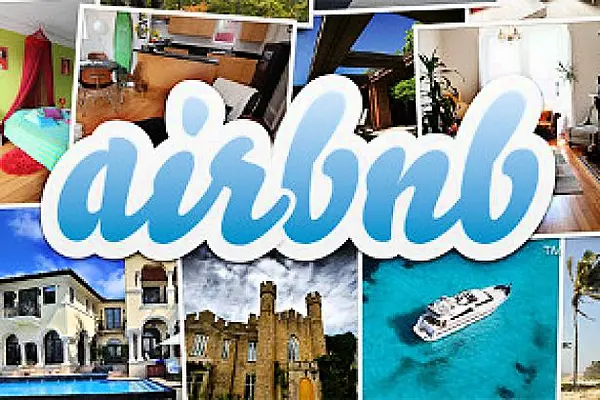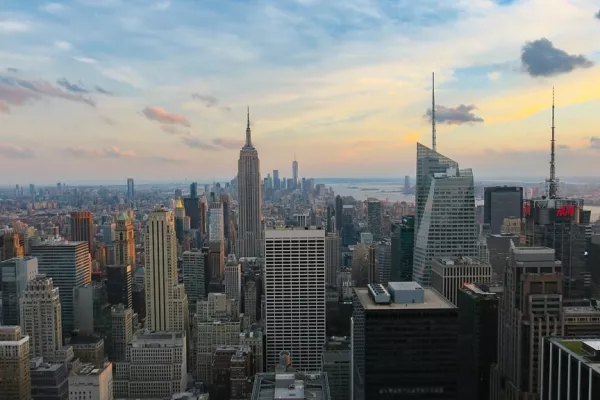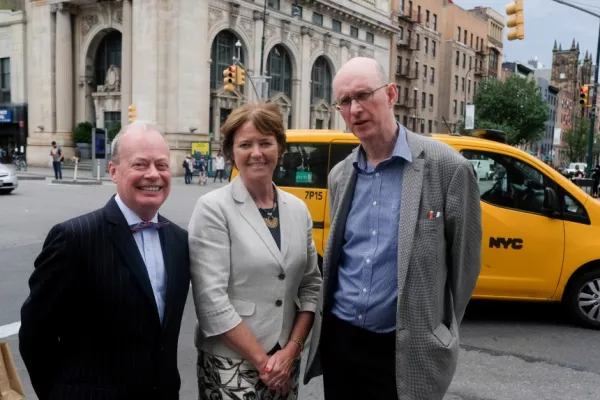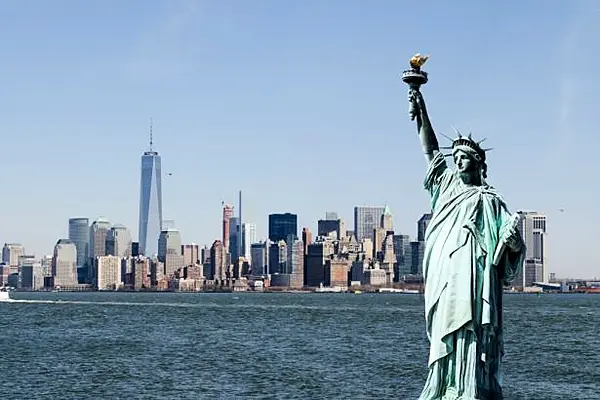Airbnb’s room-for-rent business model is hurting New York's hotel industry.
While individual hotel chains have been dismissive of the San Francisco-based startup, the organisation that represents them is going on the offensive with its first-ever public disclosure of Airbnb’s impact on the lodging industry in one of its biggest urban markets.
The tally: Airbnb accounted for $451.4 million in gross revenue in New York alone in the 12 months through 31 August, according a report commissioned by the Hotel Association of New York City. That number will jump to $805.3 million in 2018, the group said Friday.
“Obviously, some of the revenue that would have gone to the hotel industry is now going there,” Vijay Dandapani, chairman of the association, said of Airbnb. “They’re a de facto hotel company with none of the regulation that every hotel has to comply with.”
Individually, hotel chiefs have brushed off suggestions that Airbnb is eating into their business. For example:
* Adam Aron, chief executive officer of Starwood Hotels & Resorts Worldwide, said in a conference call last week: "Airbnb has been growing gangbusters in 2015. It hasn’t stopped Starwood from reporting three strong quarters in a row. I do believe that the world’s hospitality industry is large enough that it can accommodate Airbnb as a major player."
* Christopher Nassetta, CEO of Hilton Worldwide Holdings: "We do not believe there is a material impact on the bulk of our markets or with our core business and leisure customers. As we speak to our largest corporate clients, we’re confident that Airbnb will not satisfy a meaningful piece of their demand. We’ll obviously maintain a watchful eye on Airbnb as time goes on."
* Kerry Ranson, chairman of the InterContinental Hotels Group Owners Association, told the New York Times: "It’s a short-term online rental."
Airbnb accounted for 2.9 million, or 7.8 per cent, of overnight stays in New York in the latest fiscal year, compared with 33.9 million, or 92 per cent, of nightly rentals among hotels, according to the Hotel Association of New York City. Yet hotels brought in a larger portion of sales - 95 per cent of gross revenue, or $9.4 billion, thanks to a higher average cost per room.
"The entire report is based on the false assumption that our guests would have otherwise stayed in a hotel room. In fact, without Airbnb many of these travelers wouldn’t be able to visit New York City at all or would have cut their trip short," said Nick Papas, a spokesman for Airbnb. "While the big hotels have been clear that they are concerned about losing the opportunity to price gouge consumers, we hope they will disclose the percent of their profits that stay in New York City and the percent they send to corporate headquarters outside of New York and, even, outside of the country."
While Airbnb’s share might seem small, consider that the startup didn’t exist seven years ago. It’s now valued at $25.5 billion and enmeshed in a political fight in New York, where the attorney general has scrutinised rentals on Airbnb and pressed the company to crack down on rentals that are run more like unregulated hotels. In its hometown of San Francisco, Airbnb is facing a vote next week on a proposition that would impose regulations and cap rentals at 75 days a year.
The Hotel Association of New York City has donated $25,000 to an organisation supporting San Francisco’s Proposition F. Airbnb’s internal polling shows the company leading the measure by 19 percentage points.
Friday’s report also tallies the estimated loss of $88.9 million in hotel food spending and $1 billion in construction activity. The study pegs total economic losses for the city at $2.1 billion including $76.5 million in lodging taxes. The report was conducted by HVS Consulting & Valuation, a hotel consulting firm, on behalf of the group. The Hotel Association’s members include Hilton and Starwood hotels in New York, as well as the Waldorf Astoria and The Plaza.
"With the Airbnb revenue staged to potentially double in size, we only expect these impacts to grow proportionately and become a more significant and important factor in the competitive landscape of the New York City lodging market," the report said.
News by Bloomberg, edited by Hospitality Ireland









